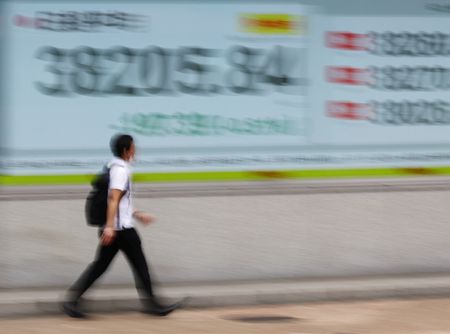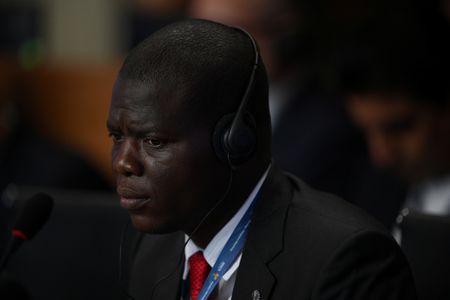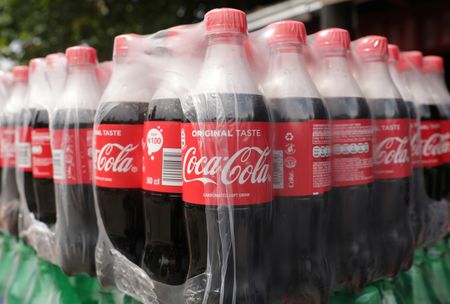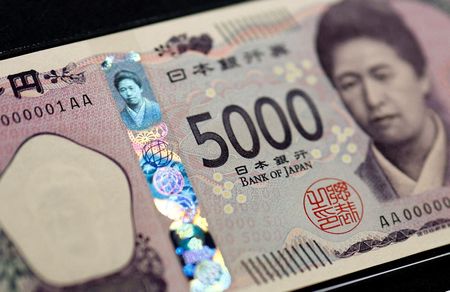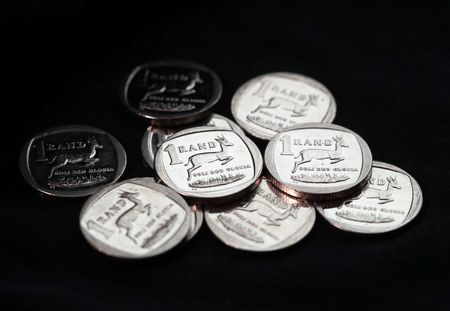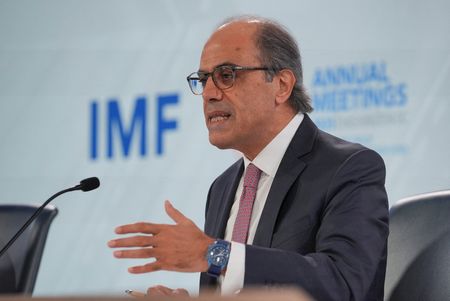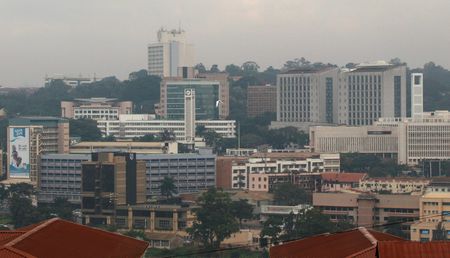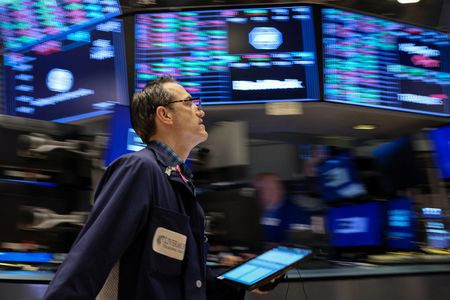By Amanda Cooper
LONDON (Reuters) -Stocks rose on Tuesday, taking comfort from a possible easing in trade tensions between the U.S. and China and as nerves over credit risks in the banking sector ebbed, which in turn nudged gold lower.
In Asia, the near-certainty of Sanae Takaichi becoming Japan’s next prime minister briefly sent Tokyo’s Nikkei to a record high and dented the yen.
U.S. President Donald Trump said he expected to reach a fair trade deal with Chinese President Xi Jinping when the two meet next week in South Korea, and played down the risks of a clash over the issue of Taiwan.
The prospect of a resolution helped bolster investor sentiment, along with a deal between Australia and the United States for the supply of rare earth materials.
INVESTORS BUY THE DIP
Investor confidence was hit hard last week as a clutch of bad loans at U.S. regional banks ignited concern over credit risks that threatened to spill into the broader markets. The prolonged U.S. government shutdown also weighed on risk assets.
But these worries have abated somewhat and prompted investors to buy the dip ahead of earnings from several large firms.
“The market has hurdled the wall of worry with ease, with new capital injected into risk and fresh oxygen into the market’s lungs,” said Chris Weston, head of research at Pepperstone.
That said, European Central Bank chief economist Philip Lane on Tuesday issued a stark warning for euro zone banks, saying they could come under pressure in a scenario in which dollar funding dries up.
“The combined presence of substantial USD-denominated off-balance sheet exposures and volatile funding means that sudden changes in these net exposures cannot be ruled out,” he said.
He cited April’s extreme market turmoil, in which the dollar and safe-haven U.S. Treasuries sold off hard, which he said made it more difficult for euro zone banks to rely on their dollar-denominated liquid assets.
Daiwa Capital Markets economist Chris Scicluna said Lane’s remarks spoke to the concern among investors about pockets of risk building across the U.S. financial sector, as investors pile into areas such as AI or credit, and what may happen if those trends reverse.
“One of the big focuses has been on the private credit strains recently in the regional banks. And quite clearly, if there’s a sudden pullback in or sudden problems in the U.S. financial sector, it will have a significant impact on European banks and others,” he said.
“The tone of the speeches out of the (ECB) Governing Council has been, on balance, becoming more cautious, more attuned to risks and downside risks,” he added.
The ECB, which meets next week, is not expected to deliver a rate cut any time soon, compared with the Federal Reserve, which could deliver as many as three rate cuts in the next six months, based on market-based expectations.
INVESTORS JUMP BACK IN
The chances of a series of U.S. rate cuts, along with comments from White House economic adviser Kevin Hassett that the federal government shutdown is likely to end this week also encouraged investors to dive back into equities.
A broad rally sent all three major U.S. stock indexes to a sharply higher close overnight with chip stocks hitting a record high.
Analysts currently expect third-quarter S&P 500 earnings growth, on aggregate, of 9.3% year-on-year, marking an improvement over their 8.8% growth estimate as of October 1.
In currencies, the dollar rose 0.25% against the yen to 151.14. Takaichi is expected to be pro-stimulus and against further hikes in interest rates, a negative for the Japanese currency and bonds but a plus for equities. The Nikkei hit a record peak just shy of a landmark 50,000 points.
The Bank of Japan meets next week. Traders are attaching a 20% chance to a hike, although Governor Kazuo Ueda has so far left his options open by offering few clues on the timing of a rate hike.
Gold prices slipped 0.6% on the day, but were not far off Monday’s record high of $4,381.21 an ounce.
(Reporting by Ankur Banerjee; Editing by Sam Holmes, Kim Coghill and Alison Williams)

